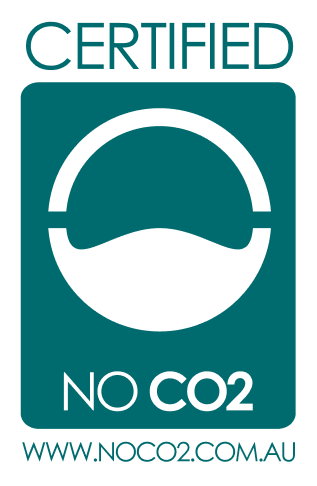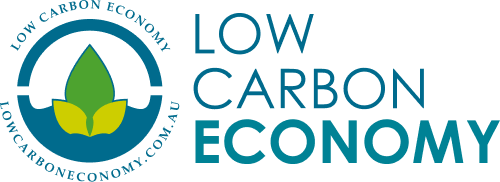DKO is one of Australia’s leading innovative design practices, specialising in urban design, architecture, and interior design. Established in 2000, the practice now has over 200 design professionals working in studios across Australia, New Zealand, and South-East Asia.
DKO’s driven and experienced design team strive to create beautiful spaces with design integrity. Their meticulous approach ensures each project is bespoke and responsive to its context. Authenticity is important to the team, as is designing spaces that are crafted with high attention to detail that will look good, and function well, for many years to come.
At the core of DKO’s design philosophy lies a commitment to an urban architecture that serves people, respects place, and stands the test of time.
What does NoCO2 Certification mean?
By meeting the requirements of the NoCO2 Program, DKO is certified as a Carbon Neutral Business by CRI; can be promoted and marketed as such, and can display the NoCO2 Logo issued by CRI. To achieve this status and become carbon neutral DKO undertook the following process:
- Commissioned a NoCO2 audit from CRI to measure their carbon footprint for FY2020. CRI’s NoCO2 audit follows the standards outlined by the World Business Council for Sustainable Development’s Greenhouse Gas Protocol Corporate Accounting and Reporting Standard (1), in addition to the international standard ISO 14064.1 (2).
- Have committed to offset their unavoidable emissions through the purchase of units in approved projects under the Verified Carbon Standard (VCS) and Gold Standard, and
- Committed to ongoing annual auditing of their emissions.
What Carbon Credit Projects does DKO purchase offsets from?
India Wind Project
Investments in clean energy sources, such as wind, are considered to be essential both in the interest of the environment and for public health reasons. Wind projects partially displace electricity currently generated from grid-connected conventional fossil fuel-based thermal power plants, while reducing emissions. Wind Projects reduce the emission of greenhouse gases and limit local air pollution, curtailing its negative health impacts. In addition to its environmental benefits, the implementation of the project creates job opportunities for local workers, contractors, and suppliers, while the operation and maintenance of the wind park generate long-term employment positions.
Certifications
Certified NoCO2 Business
Carbon Neutral Service



Contact
DKO Architecture
42 Davies St, Surry Hills NSW 2010







